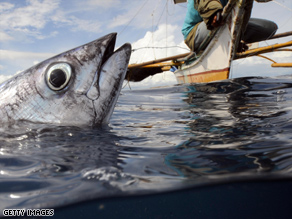
Experts have warned that the richly diverse coral reefs of the Coral Triangle around southeast Asia will disappear by the end of the century if action is not taken against climate change.
As well as the loss of one of the world’s most diverse underwater ecosystems, the knock on effect would be the collapse of coastal economies that supports around 100 million people, according to the WWF- commissioned study outlined at the World Ocean Conference this week. The Coral Triangle includes 30 percent of the world’s reefs, 76 percent of global reef building coral species and more than 35 percent of coral reef fish. However the authors of the study believe that effective global action on climate change and regional attention to problems of over-fishing and pollution would prevent catastrophe. The report presents two different possible futures for the world’s richest marine environment — the coasts, reefs and seas of the six countries of Indonesia, the Philippines, Malaysia, Papua New Guinea, the Solomon Islands and Timor Leste. “In one world scenario, we continue along our current climate trajectory and do little to protect coastal environments from the onslaught of local threats,” said Professor Ove Hoegh-Guldberg of the University of Queensland in a press statement. “In this world, people see the biological treasures of the Coral Triangle destroyed over the course of the century by rapid increases in ocean temperature, acidity and sea level, while the resilience of coastal environments also deteriorates under faltering coastal management. Poverty increases, food security plummets, economies suffer, and coastal people migrate increasingly to urban areas.”
Don’t Miss
Secretive shark basks in Caribbean
New frogs found in Madagascar
World Ocean Conference 2009
“Tens of millions of people are forced to move from rural and coastal settings due to loss of homes, food resources and income, putting pressure on regional cities and surrounding developed nations such as Australian and New Zealand.” Even under the best-case scenario, communities will face loss of coral, sea level rises, increased storm activity, severe droughts and reduced food availability from coastal fisheries, the report’s authors say. A key difference, they note, is that communities remain reasonably intact and more resilient in the face of these hardships.
“Effective management of coastal resources through a range of options including marine protected areas, protection of mangroves and seagrass beds and effective management of fisheries would result in a slower decline in these resources,” the summary report said. “World leaders must support Coral Triangle countries in their efforts to protect their most vulnerable communities from rising sea levels and loss of food and livelihoods by helping them to strengthen management of their marine resources and by forging a strong agreement on greenhouse gas reductions at the UN Climate Conference at Copenhagen in December this year,” said WWF International Director General James Leape.